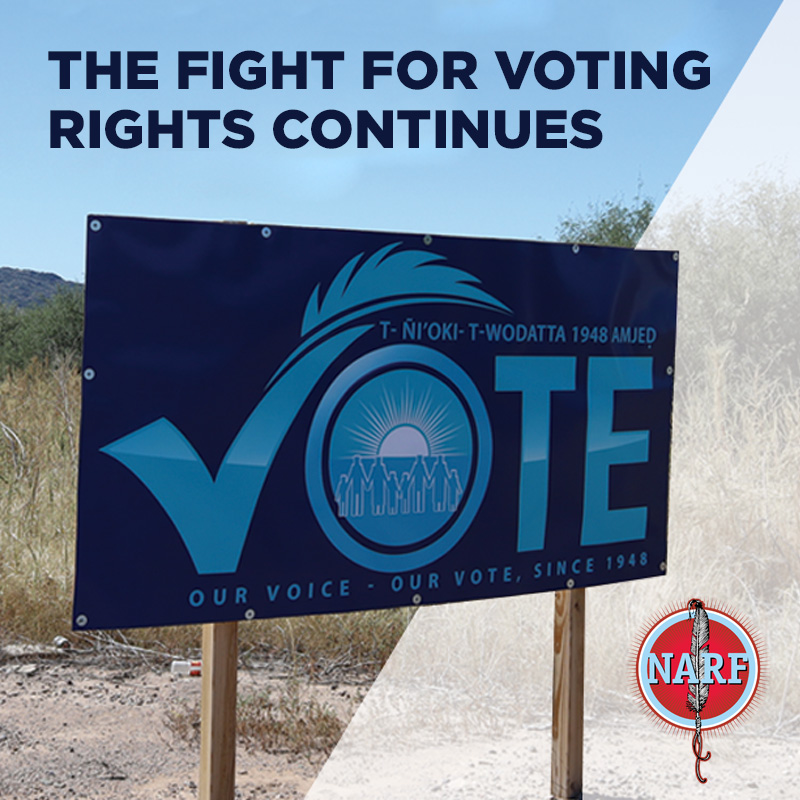On September 14, 2023, U.S. District Court Judge Susan R. Bolton ruled in favor of the Tohono O’odham Nation, the Gila River Indian Community and Native voters against a voter suppression law requiring proof of a physical address when more than 40,000 homes on Native American reservations across Arizona do not have physical addresses. The order holds that the proof of address requirements in Arizona HB 2492 are preempted by the National Voter Registration Act.

The Arizona Elections Procedures manual published in December 2023 and updated in January 2024, incorporates the proof of location of residence relief obtained by the Tribal Nations in 2023. No party has appealed this relief, so the Tribes’ case is concluded.
However, other parties and issues related to proof of citizenship continued forward in the case. In November 2023, those parties went to trial in Mi Familia Vota v. Fontes. Final judgement in the case was issued on May 2, 2024. Since that ruling, appeals have been filed. In late September 2024, mere weeks before the election, the U.S. Supreme Court stopped the lower court’s ruling that had blocked election officials from automatically rejecting state voter registration forms without documentary proof of citizenship.
While this ruling does not affect the Tribal Nations’ documentary proof of residence relief, the ruling is forcing last-minute changes to longstanding voter registration practices in Arizona, which complicate things for election administrators and voters. It is important for Native voters in Arizona to know that they can satisfy the documentary proof of citizenship requirement by providing their Tribal enrollment number and that other options include a state ID with a US flag on it, a US passport, or a birth certificate. To be registered to vote in federal, state, and local elections, documentary proof of citizenship is necessary. If eligible voters cannot provide documentary proof of citizenship, they can register using the federal voter registration form to register to vote for president and members of Congress, but they will not be able to vote in state and local elections.
Read More About: Tohono O’odham v. Brnovich
More blog posts

